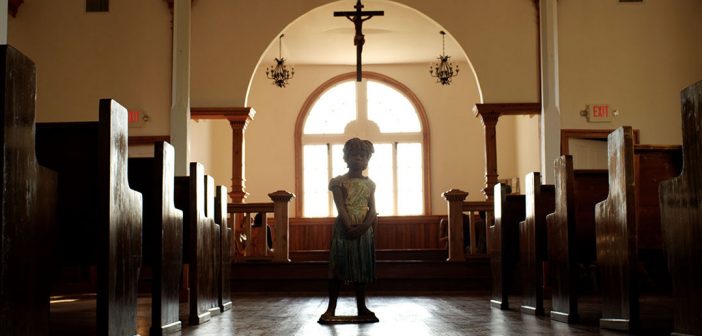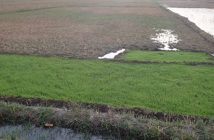Retired lawyer and historian John Cummings believes slavery is America’s greatest sin, and that it is alive and well in the form of systemic and blatant racism. He said too many descendants of slaves live in abject poverty today.
“Why? Because we kicked them under the bus in 1863,” Cummings said, noting the year slavery ended. “Do we have a moral responsibility? Jesus Christ says so. Don’t you think so?”
Moreover, Cummings wants to know “What are [we]going to do about it?”
Cummings will be the keynote speaker at an April 1 symposium to be held at Fordham’s Lincoln Center campus titled, “Slavery on the Cross: Catholics and the ‘Peculiar Institution,’ Praxis and Practice.” He said he will discuss the same question with academics and activists sitting on three separate panels.
Bentley Anderson, S.J., associate professor of history and associate chair of the Department of African and African American Studies, which is co-hosting the event, said that the keynote talk will be preceded by two morning panels that will contextualize the topic, and followed by an afternoon panel that will address its legacy.
“We’ve invited scholars who deal with questions of race and religion from the past and into the present,” he said. “And we’ll have folks from the New York region who are actually putting their faith into practice by addressing issues of systemic racism.”
For Cummings, addressing the legacy of racism has become the culmination of a life’s work. After earning a law degree from Loyola University New Orleans and practicing for several years, he purchased a sugar cane plantation near New Orleans as an investment. But as he began to delve into the plantation’s history, he said he was shocked by his own ignorance of the institution of slavery.
Today, the Whitney Plantation is the nation’s first museum fully dedicated to the history of slavery, said Cummings. The plantation now celebrates the strength of the men and women who toiled in its fields, and it displays a wide variety historic items relating to slavery.
An Irish Catholic who had a modest upbringing in New Orleans, Cummings said his own working class family has no direct lineage to slave owners. But he believes all Americans must contend with the legacy.
“We’re all recovering racists because we were raised in this place,” he said.
Father Anderson, who also grew up in New Orleans, said he met Cummings when he toured the plantation with his parents. The two began a discussion about the church’s history with slavery, in which Father Anderson said Cummings did indeed ask him “What are you going to do about it?”
The April 1 symposium evolved from that conversation, said Father Anderson.
“He challenged me on a faith level and academic level, and what I can do is bring people together to discuss, reflect, and act,” said Father Anderson.
Cummings said he struggles on a personal level with the moral conundrum of the church’s role in slavery. He hopes the symposium will raise consciousness among contemporary Americans that, although they may not bear the responsibility for slavery, they must take responsibility for its legacy.
“We have put slavery in the rearview mirror,” he said. “It was done on someone else’s watch—not so far back we can’t see it—but we have to look forward and find out what our obligation is to its descendants.”
The event will be held from 9 a.m. to 4 p.m. at the Corrigan Conference Center.
Participants:
Thomas Murphy, S.J., Seattle University
M. Shawn Copeland, Ph.D., Boston College
Bryan Massingale, S.T.D., Fordham University
James O’Toole, Ph.D., Boston College
John Cummings, Whitney Plantation Museum
Albert Holtz, O.S.B., Newark Abbey – Newak, NJ
Gregory Chisholm, S.J., St. Charles Borromeo – Harlem, NY
Maurice Nutt, C.Ss.R., Xavier University of Louisiana Institute
Jeannine Hill Fletcher, Ph.D., Fordham University
Co-sponsored by: Theology Dept., Political Science Dept., Philosophy Dept., Communication and Media Studies, Curran Center for American Catholic Studies, The Jesuits of Fordham University.



